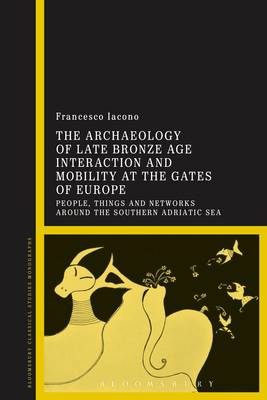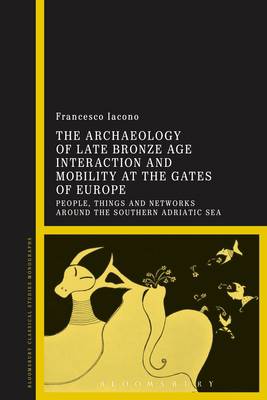
Bedankt voor het vertrouwen het afgelopen jaar! Om jou te bedanken bieden we GRATIS verzending (in België) aan op alles gedurende de hele maand januari.
- Afhalen na 1 uur in een winkel met voorraad
- In januari gratis thuislevering in België
- Ruim aanbod met 7 miljoen producten
Bedankt voor het vertrouwen het afgelopen jaar! Om jou te bedanken bieden we GRATIS verzending (in België) aan op alles gedurende de hele maand januari.
- Afhalen na 1 uur in een winkel met voorraad
- In januari gratis thuislevering in België
- Ruim aanbod met 7 miljoen producten
Zoeken
The Archaeology of Late Bronze Age Interaction and Mobility at the Gates of Europe
People, Things and Networks around the Southern Adriatic Sea
Francesco Iacono
€ 76,45
+ 152 punten
Uitvoering
Omschrijving
Interaction and mobility have attracted much interest in research within scholarly fields as different as archaeology, history, and more broadly the humanities. Critically assessing some of the most widespread views on interaction and its social impact, this book proposes an innovative perspective which combines radical social theory and currently burgeoning network methodologies.
Through an in-depth analysis of a wealth of data often difficult to access, and illustrated by many diagrams and maps, the book highlights connections and their social implications at different scales ranging from the individual settlement to the Mediterranean. The resulting diachronic narrative explores social and economic trajectories over some seven centuries and sheds new light on the broad historical trends affecting the life of people living around the Middle Sea.
The Bronze Age is the first period of intense interaction between early state societies of the Eastern Mediterranean and the small-scale communities to the west of Greece, with people and goods moving at a scale previously unprecedented. This encounter is explored from the vantage point of one of its main foci: Apulia, located in the southern Adriatic, at the junction between East and West and the entryway of one of the major routes for the resource-rich European continent.
Through an in-depth analysis of a wealth of data often difficult to access, and illustrated by many diagrams and maps, the book highlights connections and their social implications at different scales ranging from the individual settlement to the Mediterranean. The resulting diachronic narrative explores social and economic trajectories over some seven centuries and sheds new light on the broad historical trends affecting the life of people living around the Middle Sea.
The Bronze Age is the first period of intense interaction between early state societies of the Eastern Mediterranean and the small-scale communities to the west of Greece, with people and goods moving at a scale previously unprecedented. This encounter is explored from the vantage point of one of its main foci: Apulia, located in the southern Adriatic, at the junction between East and West and the entryway of one of the major routes for the resource-rich European continent.
Specificaties
Betrokkenen
- Auteur(s):
- Uitgeverij:
Inhoud
- Aantal bladzijden:
- 304
- Taal:
- Engels
- Reeks:
Eigenschappen
- Productcode (EAN):
- 9781350171060
- Verschijningsdatum:
- 25/06/2020
- Uitvoering:
- Paperback
- Formaat:
- Trade paperback (VS)
- Afmetingen:
- 156 mm x 234 mm
- Gewicht:
- 426 g

Alleen bij Standaard Boekhandel
+ 152 punten op je klantenkaart van Standaard Boekhandel
Beoordelingen
We publiceren alleen reviews die voldoen aan de voorwaarden voor reviews. Bekijk onze voorwaarden voor reviews.









